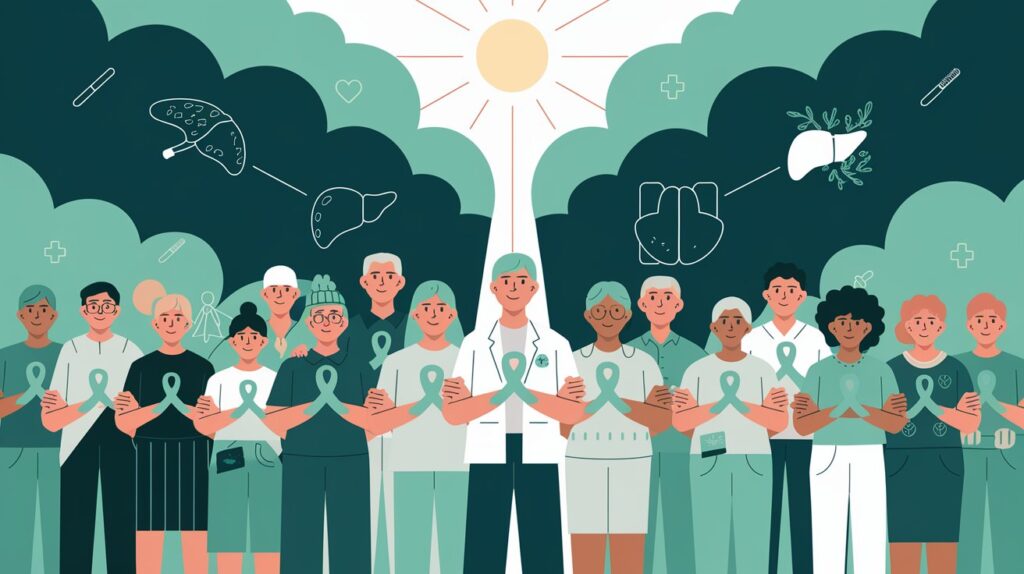
Liver cancer is one of the most serious forms of cancer, affecting the liver, a vital organ responsible for detoxifying the blood, metabolizing drugs, and producing proteins that aid in blood clotting. Liver cancer often develops due to chronic liver diseases such as cirrhosis or hepatitis, though it can also occur in individuals without these conditions. Understanding liver cancer, its causes, symptoms, and treatment options can help with the early detection and management of this life-threatening disease.
What Is Liver Cancer?
Liver cancer originates in the liver cells and is classified into several types. The most common type is hepatocellular carcinoma (HCC), which begins in hepatocytes, the main type of liver cells. Other, less common types of liver cancer include intrahepatic cholangiocarcinoma (bile duct cancer) and angiosarcoma, which affects blood vessels in the liver. Early detection is critical for effective treatment, as liver cancer often shows symptoms only in its later stages.
Causes and Risk Factors
- Chronic liver diseases: Long-term liver conditions such as cirrhosis, often caused by alcohol abuse, hepatitis B and C infections, or fatty liver disease, significantly increase the risk of liver cancer.
- Hepatitis infections: Individuals with chronic hepatitis B or C are at higher risk of liver cancer. Hepatitis infections can cause ongoing liver inflammation, which can lead to cancer over time.
- Alcohol abuse: Excessive alcohol consumption over the years can damage liver cells and lead to cirrhosis, which is a significant risk factor for liver cancer.
- Obesity and type 2 diabetes: These conditions are often associated with fatty liver disease, which can increase the likelihood of developing liver cancer.
- Aflatoxins: Exposure to aflatoxins, harmful substances produced by certain molds that can contaminate food supplies, also raises the risk of liver cancer.
Symptoms of Liver Cancer
Early liver cancer often presents no symptoms, making it difficult to detect until the disease has progressed. However, as the cancer advances, the following symptoms may occur:
- Unexplained weight loss
- Loss of appetite
- Persistent fatigue
- Upper abdominal pain or swelling
- Jaundice (yellowing of the skin and eyes)
- Nausea or vomiting
- A swollen abdomen due to fluid accumulation
If you experience any of these symptoms, particularly if you are at high risk for liver cancer, it is crucial to seek medical advice promptly.
Diagnosis and Treatment
Liver cancer diagnosis usually involves a combination of imaging tests, such as ultrasounds, CT scans, or MRIs, along with blood tests and biopsies to confirm the presence of cancerous cells.
- Surgery: For early-stage liver cancer, surgical resection of the tumor or a liver transplant can be beneficial. In some cases, only a portion of the liver may need to be removed, as the liver has the ability to regenerate.
- Ablation and embolization: Ablation therapies use heat, cold, or chemicals to destroy cancer cells, while embolization cuts off the blood supply to the tumor, causing it to shrink.
- Targeted therapy: These drugs attack specific cancer cells and are often used in advanced liver cancer to slow down the disease’s progression.
- Immunotherapy: This form of treatment boosts the immune system to help it fight cancer more effectively.
- Radiation therapy and chemotherapy: While not as commonly used for liver cancer, these treatments may be recommended in some cases, particularly when other therapies are not feasible.
Prevention and Conclusion
Prevention strategies include reducing the risk of liver disease by limiting alcohol consumption, maintaining a healthy weight, getting vaccinated against hepatitis B, and managing hepatitis C infections effectively. Regular screenings are essential for individuals at high risk, as early detection is key to improving survival rates.
In conclusion, liver cancer is a serious condition often linked to chronic liver disease, hepatitis, and lifestyle factors. Early diagnosis and treatment significantly improve the chances of survival, making it crucial for individuals at risk to remain vigilant about their liver health.
